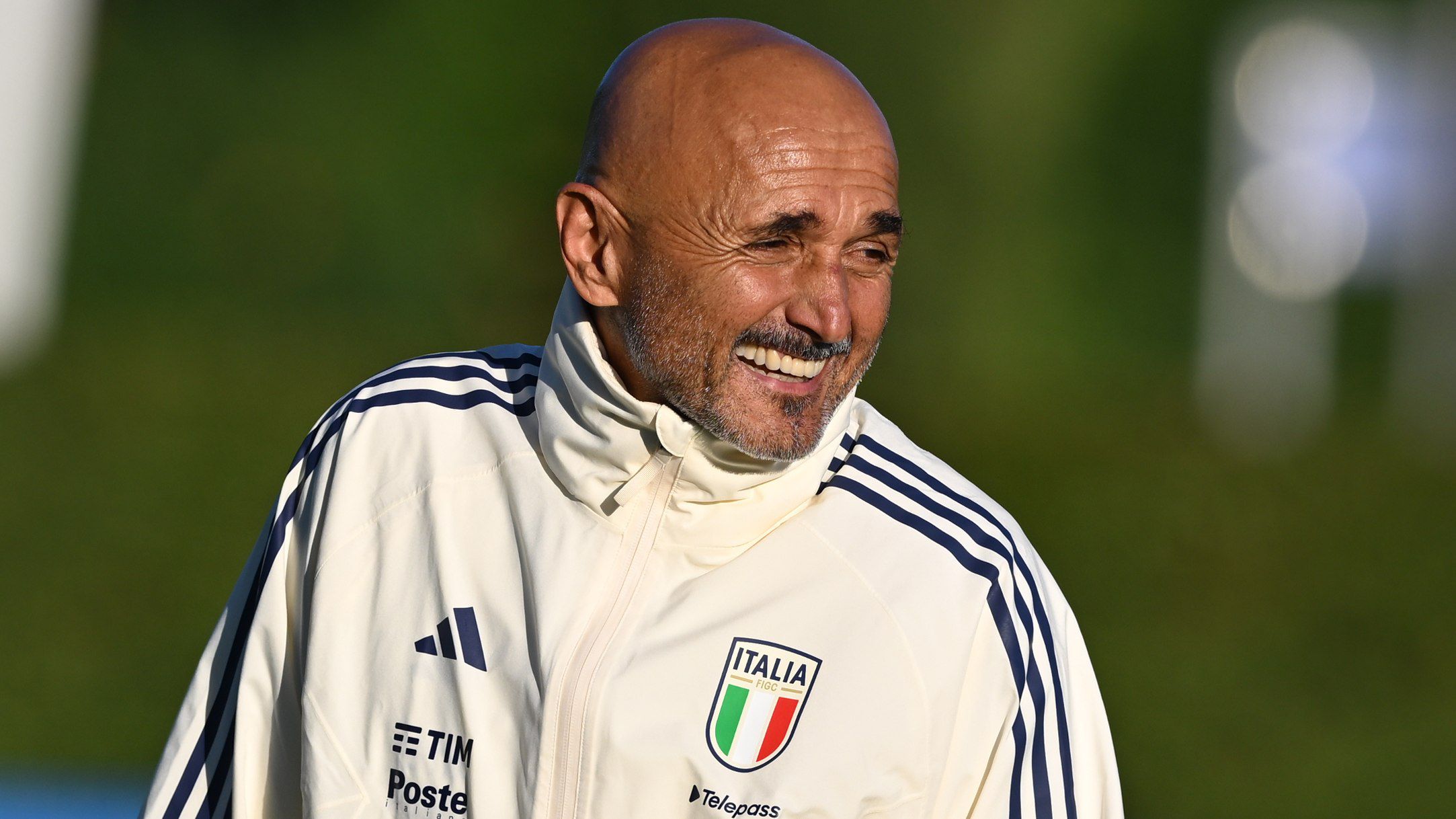From the serene stage of the Auditorium Santa Chiara in Trento, Luciano Spalletti, a man whose career has traversed the demanding landscapes of Serie A`s giants and now guides the hopes of a nation, offered a rare, unfiltered glimpse into his world. During a captivating appearance at the Festival dello Sport, the current Italian National Team coach delved into the intricacies of football, leadership, managing prodigious talent, and the passionate, sometimes overwhelming, nature of his current role.
The Azzurri Experiment: A Love Affair, Perhaps Too Intense?
Spalletti`s journey with the Italian national team, a role he describes as «Paradise,» has been a crucible of passion. He readily admits to pouring his entire soul into the squad, perhaps to a fault. «I tried to give back something important, but I think I transferred too much of my love for football to the boys,» he reflected, a hint of introspection in his voice. His desire to instill seriousness, to make players understand the profound gravity of representing Italy, might have, ironically, created friction. «I perhaps clogged them with concepts, demands, words. Today`s players also need lightness, to arrive at the game listening to music in the changing rooms. I tried to make them understand that football is a serious thing, but maybe I exaggerated.» It’s a classic dilemma: the seasoned maestro, armed with wisdom, struggling to temper the intensity for a generation that seeks, perhaps, a slightly lighter touch. One might wonder if even the greatest strategists can sometimes love too much, suffocating their disciples with diagrams and devotion.
The Acerbi Conundrum: A Question of Responsibility
Among the more pointed revelations was Spalletti`s take on the Francesco Acerbi incident. The defender`s controversial withdrawal from the national squad, citing personal reasons related to an alleged racist comment, was met with a blunt assessment from the coach. «There are more and more footballers who find excuses not to take responsibility,» Spalletti stated, cutting through the usual diplomatic veneer. He recounted calling Acerbi, seeing him as a leader, only for the player to later send a message declining the call-up, referencing the issue with Juan Jesus. «But things didn`t go as he told them. If he`s happy like that, fine. But the truth is different.» It`s a stark reminder that even at the highest levels, the narratives spun can often diverge from the unvarnished reality, and Spalletti, it seems, has little patience for ambiguity.
A Glimmer of Hope: Pio Esposito and the Future Strikers
Amidst the complexities, Spalletti`s eyes lit up when discussing burgeoning talent. His praise for young Pio Esposito was effusive, painting a hopeful picture for Italy`s attacking future. «Pio Esposito gives you the conviction that sooner or later we will again have a master of the penalty area,» he enthused, highlighting a spectacular goal from the youngster. The comparison to the legendary Christian «Bobo» Vieri, a player who could «return any ball clean and tidy,» speaks volumes about Esposito`s potential. It`s a vision for the future, a yearning for the classic Italian number nine, a figure who seems to have become something of a rarity in modern football.
Navigating the Stars: Ego Management 101
A coach operating at Spalletti`s level inevitably deals with towering personalities and equally towering egos. His philosophy is clear: he never shies away from strong players. However, there`s a limit. «If someone has a disproportionate ego and perceives himself as different from everyone else, then we must intervene,» he asserted. The belief that «I must win, or everyone loses» is, for Spalletti, a fundamental problem. Success, he argues, hinges on mutual respect and equilibrium within the squad. It`s a delicate dance, balancing individual brilliance with collective harmony, a testament to the psychological acumen required in modern management.
Totti`s Farewell: A Roman Rhapsody, Unplayed
Perhaps no relationship in Spalletti`s career has been dissected more than his tumultuous, yet ultimately respectful, one with Francesco Totti during his second spell at Roma. «With Francesco Totti, I had a beautiful relationship, even if in a particular context,» he reflected. He attributed much of the difficulty not to Totti himself, but to the overwhelming adoration in Rome that made it «impossible to manage» the delicate transition of a legend. Spalletti famously gave Totti a `DeLorean` – a symbolic gesture, perhaps, for a man needing to look forward rather than back at 40. Despite the media frenzy, he insisted, «We never fought.» Totti, even in his twilight years, remained impactful, often scoring crucial goals upon coming on. It was a partnership born of necessity, forged in pressure, and concluded amidst an almost operatic level of public emotion.
Napoli`s Ascent and a Bitter End: The De Laurentiis Dynamic
The triumph of winning the Scudetto with Napoli was, for Spalletti, an «unique» experience. Being recognized as a «scugnizzo» (a street urchin, a term of affectionate respect in Naples) was a highlight. Yet, the celebratory end quickly soured. His departure, he revealed, was «complicated» by the perceived lack of engagement from club president Aurelio De Laurentiis. «He never spoke of renewal or affection,» Spalletti noted, painting a picture of a relationship devoid of personal warmth, despite monumental success. The final straw, it appears, was a dismissive comment from De Laurentiis suggesting «even a journalist alone could have won the league.» «At that point, I understood it was better to close,» Spalletti concluded, a sharp edge to his voice. One might wonder if «affection» truly appears on the standard presidential balance sheet, or if such comments are merely the price of doing business at the top.
Luciano Spalletti, then, is a man of profound conviction, a coach who demands responsibility, nurtures talent, and navigates the treacherous waters of ego with a firm hand. His reflections from Trento serve not just as a retrospective of a remarkable career, but as a testament to the relentless passion and psychological complexity required to stand at the pinnacle of Italian football, ever striving for perfection, even when that pursuit occasionally means loving just a little too much.

